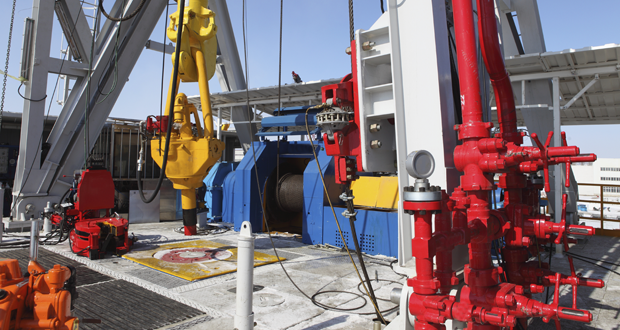Wood Mackenzie: Falling costs to soften blow of slashed exploration budgets

Exploration budget cuts in 2015 will average 30%, but that will be matched by an approximately equal fall in exploration costs, according to Wood Mackenzie. The industry has been working to address the long-standing cost inflation issue, the market analyst firm stated, and costs are expected to fall by a third this year, softening the blow of budget cuts. Although overall well numbers will dip in 2015, Wood Mackenzie expects drilling activity to recover in 2016 as many explorers seize their chance to drill at lower costs.
“Rising costs are not a new problem for explorers. Over this decade, inflation has more than offset price gains and left much of the industry struggling to create value,” Dr Andrew Latham, VP Exploration Research for Wood Mackenzie, said. “Now that prices have fallen sharply, this problem has become acute. In the short term, many explorers will react by simply spending less. But what they really need is lower costs.”
In its report, “Upstream Cost Deflation: How Much Could Costs of Exploration Fall?” Wood Mackenzie concludes that exploration deflation will average 33% by 2016, comprising global elements that are locally compounded by favorable exchange rate moves: Like-for-like costs will decline by 19%; simplification of activities could save 5%; efficiency improvements will save another 5%; and US dollar strength will save 4% overall.
“Only about half of these gains will be enjoyed during 2015 as contracts unwind and operators take time to adopt new practices,” Dr Latham explained. “We expect the full benefit during 2016, unless oil prices recover quickly. Deflation at this rate could allow any companies that hold spending flat into 2016 to fund 50% more exploration versus 2014. Even those with cuts of around the average 30% may see their 2016 activity bounce back to 2014 levels.”
Tom Ellacott, VP Corporate Upstream Research for Wood Mackenzie, describes companies’ reaction to low oil prices: “Cutting back on exploration spend has been a core element in the strategic response to low oil prices. The industry has moved more rapidly than it did during the previous, short-lived, price crash of 2008-09, with spend now expected to be down 30% year-on-year. But the scale of the cuts varies widely. International explorers such as Tullow have had to slash spend by up to 80% to conserve cash. In contrast, some of the majors are continuing to invest through the cycle, with Shell keeping conventional exploration spend flat year-on-year.”
Wood Mackenzie also sees an unexpected upside: “Whilst overall well numbers will dip this year, we expect recovery in 2016 as many explorers seize their chance to drill at lower cost. Those that hold exploration spending flat or make only modest cuts could yet achieve ‘more with less.’ The time is right for strong explorers to be counter-cyclical and increase their drilling in high-impact plays.”
The report highlights that, prior to the recent oil price falls, some of the strongest service sector margins had been among drilling and seismic contractors: “Exploration-focused contractors should, therefore, be able to reduce their prices further and quicker than relatively less profitable general oilfield service providers,” Dr Latham said. “Exploration cost deflation will thus exceed equivalent falls in costs of development. Lower costs of exploration will help reduce breakeven prices and improve full-cycle economics with some of the best improvements in deepwater plays. However, exploration savings alone are only a small part of the story, perhaps shaving $5 or less from typical breakeven prices. Reductions are also needed from the relatively much larger development and operating costs.”
On efficiency gains, Dr Latham said: “With costs having been a thorny issue for years, the industry has already had plenty of time to drive out inefficiencies, but lower prices will further focus minds and push operators to squeeze harder. Operators are pushing contractors hard to secure lower prices but are conscious that if this causes a drop in standards, then it may prove a false economy. We believe that performance bonus contracts are one tactic to address this risk. We’ve already seen rig owners and seismic contractors retiring rigs and vessels to remove older equipment and technology from the market resulting in a remaining fleet that is relatively newer and, crucially, more efficient.”
Commenting on the wider impact on the volume of discoveries in the future, Dr Latham commented: “Explorers have been finding smaller overall volumes in new discoveries each year since 2010 as the mega-plays of Brazil’s Santos basin and East Africa gas move towards appraisal and development. Reduced spend and activity, together with more emphasis on low-impact exploration, will likely continue this declining volume trend into 2015.”
He concluded that the exploration industry will spend approximately 30% less this year, but growing deflation could soften the corresponding activity decline to just 15%. “By 2016, deflation could have largely matched the fall in spending, with the industry moving forward on a new cost-efficient basis,” he said.




